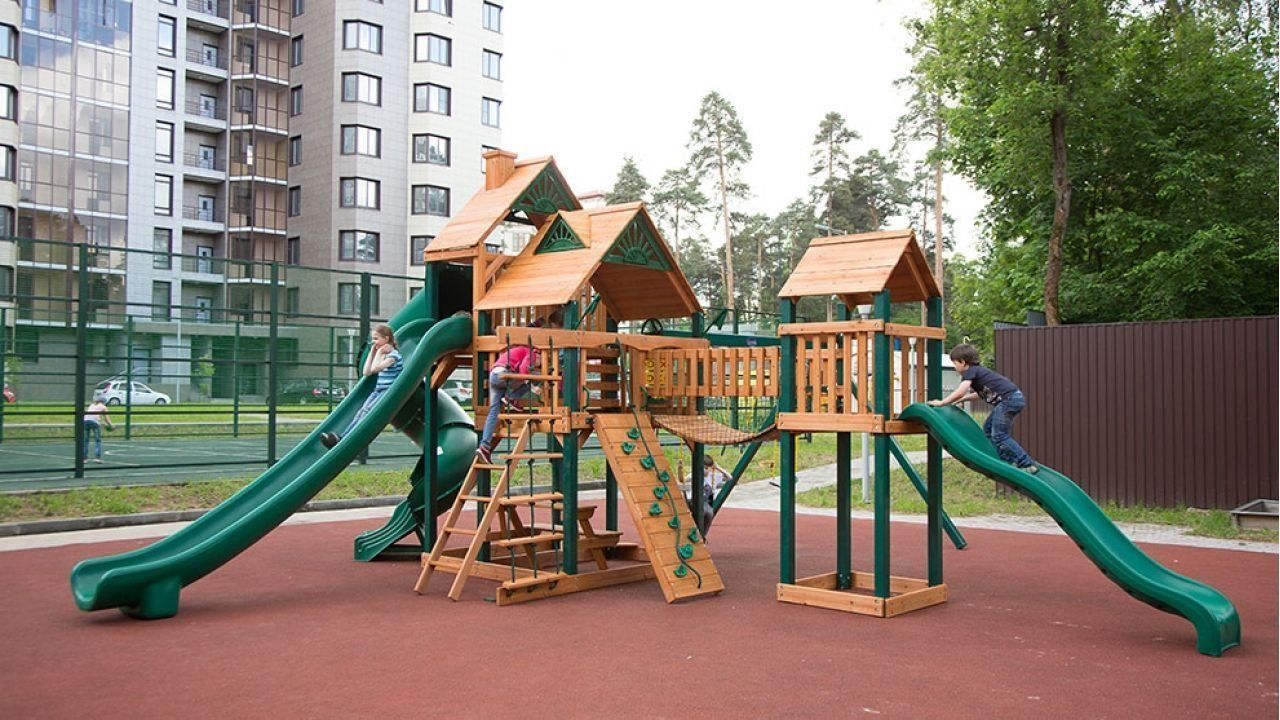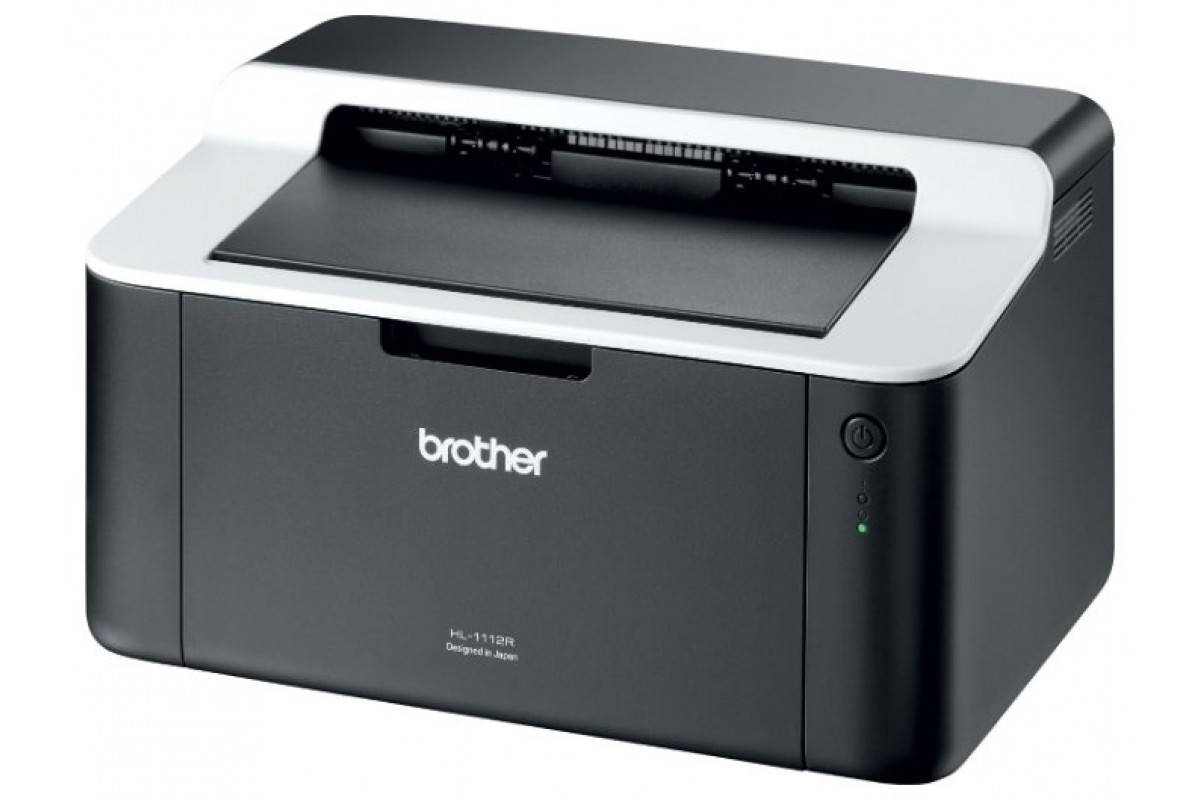Best antipyretics for kids in 2020
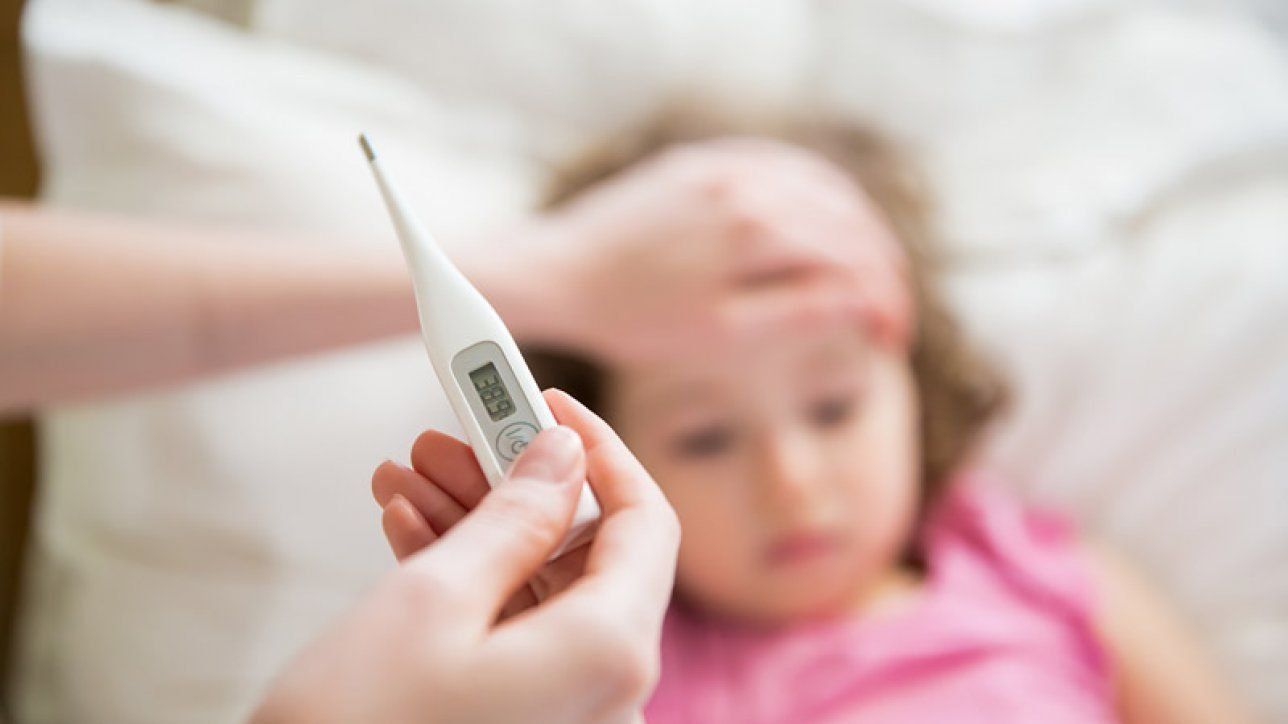
When a child's temperature rises during illness, the body experiences tremendous stress. Pediatricians advise to bring down the temperature in any way if it rises to +38 degrees and more. For this, you need to use special preparations developed taking into account the child's body. The ranking of the best antipyretic drugs for children will help you choose the most suitable one. In this case, one should take into account not only the age of the baby, but also the main active ingredient of the medicine. This will help avoid an allergic reaction or complication.
When there is a need for antipyretic
Pediatricians claim that high body temperature is a normal state of a person in case of viral or infectious diseases. In this case, hypertheremia is a sign of the synthesis of antibodies designed to fight the disease. Therefore, it is not necessary to lower the temperature artificially if the patient's condition does not worsen.
Antipyretic is usually given in the following cases:
- for babies up to 3 months, if the temperature rises above +38 degrees;
- for babies from 3 months, if the temperature does not drop below +39 degrees;
- in children under 7 years of age, with a temperature rise of more than +37.5 degrees;
- if you have heart disease or problems with the respiratory system.
In other cases, there is no need to lower the temperature on your own, if the child's condition does not deteriorate and there are no severe symptoms.
Antipyretic forms
In pharmacies, you can find drugs that knock down high temperatures in various forms. This makes it possible to use them even in infancy, when the child is not able to take a pill.
The following types of drugs are most often used for children:
- Suppositories are ideal for infants. The effect of the active ingredient becomes noticeable half an hour after the absorption of the drug in the large intestine. The advantage of this form of medicine is that it can be given to a child even in a serious condition, if vomiting or regurgitation is observed.
- Suspensions are most often given to children from 1 year old, but sometimes pediatricians allow this type of antipyretic to be used at an earlier age. The advantage of this form is that the active substance begins to act very quickly and makes it possible to stabilize the temperature even at high growth rates. When purchasing a suspension, you should pay attention to the composition. Some manufacturers add a variety of additives and flavorings to it to improve its taste. This can cause an allergic reaction in the child.
- It is recommended to give tablets to the child only if he is able to swallow them on his own. For this reason, pills are given only at an older age. Babies are more likely to vomit from the pills. If the baby cannot swallow the tablet whole, it must be crushed and diluted with water.
For any form of medicine, it is imperative to take into account the dose of the active substance that knocks down the temperature. Most often, suspensions are used for babies. But their effectiveness is rather low if the temperature rise is persistent.
How to properly give antipyretics to a child
When taking any drugs that bring down a high temperature, the child should adhere to certain rules:
- You can not make an independent prescription of the drug. The drug is prescribed only by a doctor after assessing the condition of the baby, taking into account all the necessary parameters.
- Do not give medications based on ibuprofen or paracetamol to relieve pain. They are intended solely to relieve hyperthermia.
- From the age of 9, a sick child should be given drugs for temperature in the form of tablets.
- It is allowed to give no more than 60 mg per day for each kilogram of the child's body weight of paracetamol.
- To cope with the rapidly increasing temperature, you should give the baby a syrup or suspension.
- For more than three days in a row, you can not give the child an antipyretic.
- If the temperature rises due to abdominal pain, while he has diarrhea, vomiting, or just nausea, you should first call an ambulance.
Antipyretics with paracetamol
The most effective for relieving fever in children from 1 month old is paracetamol or acetaminophen. It quickly knocks down the temperature and eliminates pain. Preparations with such an active ingredient are recommended by specialists to treat a variety of respiratory diseases, to relieve inflammation or to alleviate the condition during teething.
You can not take such a remedy for children with diabetes of any type, with viral hepatitis or with chronic liver or kidney ailments. If the dosage is violated, the child may experience an allergic reaction in the form of rashes on the skin, nausea and severe vomiting, refusal to eat.
Paracetamol
This medication is a non-narcotic analgesic and antipyretic. It relieves heat and pain well, and has a slight anti-inflammatory effect. One dose of the drug allows you to lower body temperature by 1-1.5 degrees. The achieved value can be maintained for four hours.
This drug is recommended to be consumed for various viral and colds. It also eases the condition of the child during the eruption of milk teeth. Until a child reaches the age of 3 months, Paracetamol should be used only on the recommendation of a pediatrician. In this case, it is recommended to give the medicine to the child in the form of a syrup or suspension. The dose prescribed by the doctor is given to the baby before meals. In this case, the suspension is not diluted with other liquids, and the syrup can be added to water and given to the baby from a bottle.
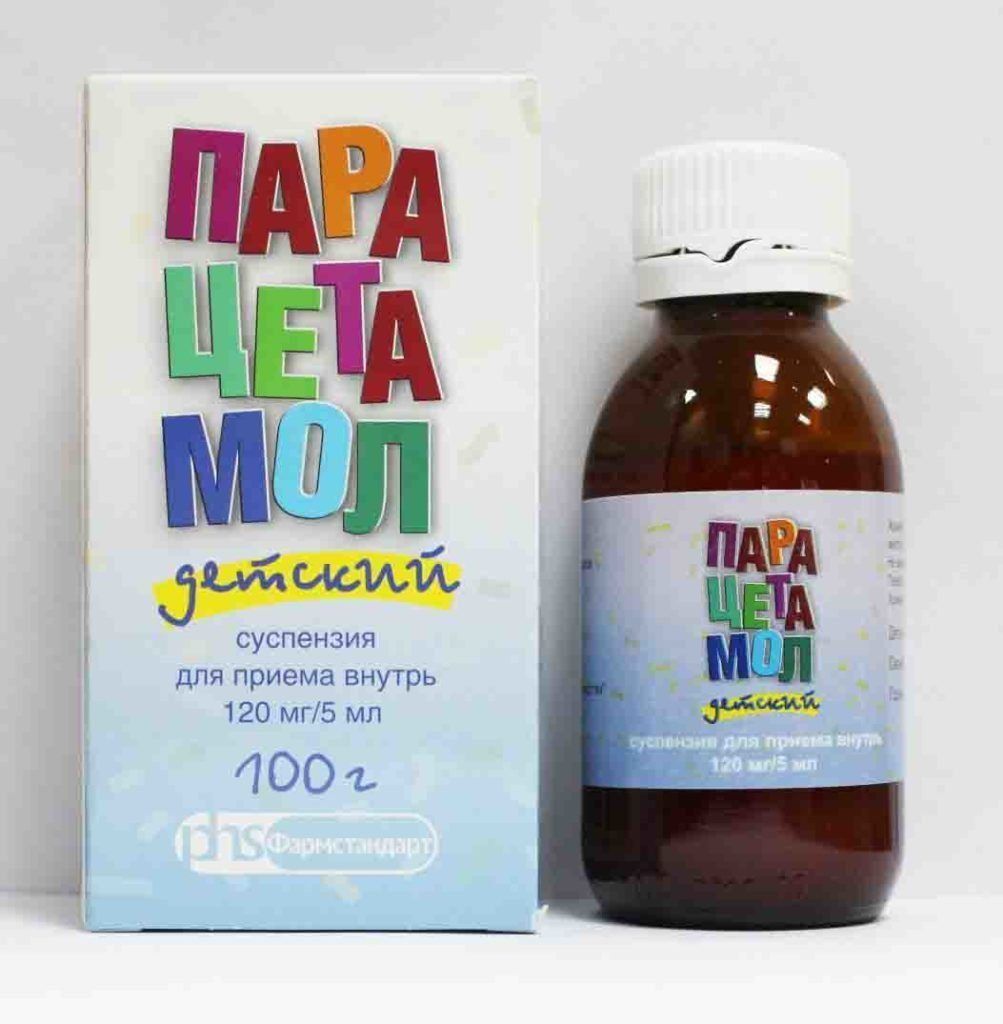
- the possibility of using at an early age;
- does not give serious complications.
- sometimes there is an allergic reaction in the form of vomiting, nausea, or a skin rash.
In most pharmacies, the price of the drug ranges from 50-120 rubles.
Panadol
The drug for the treatment of children is available in the form of rectal suppositories or suspension. It can be used by a child from the age of 3 months. In this case, the dosage must be selected for each patient individually, depending on his weight. It is allowed to give no more than four recommended doses per day. Suppositories are used a maximum of three times a day. This drug is good because it does not cause swelling in the child due to water retention in the body.
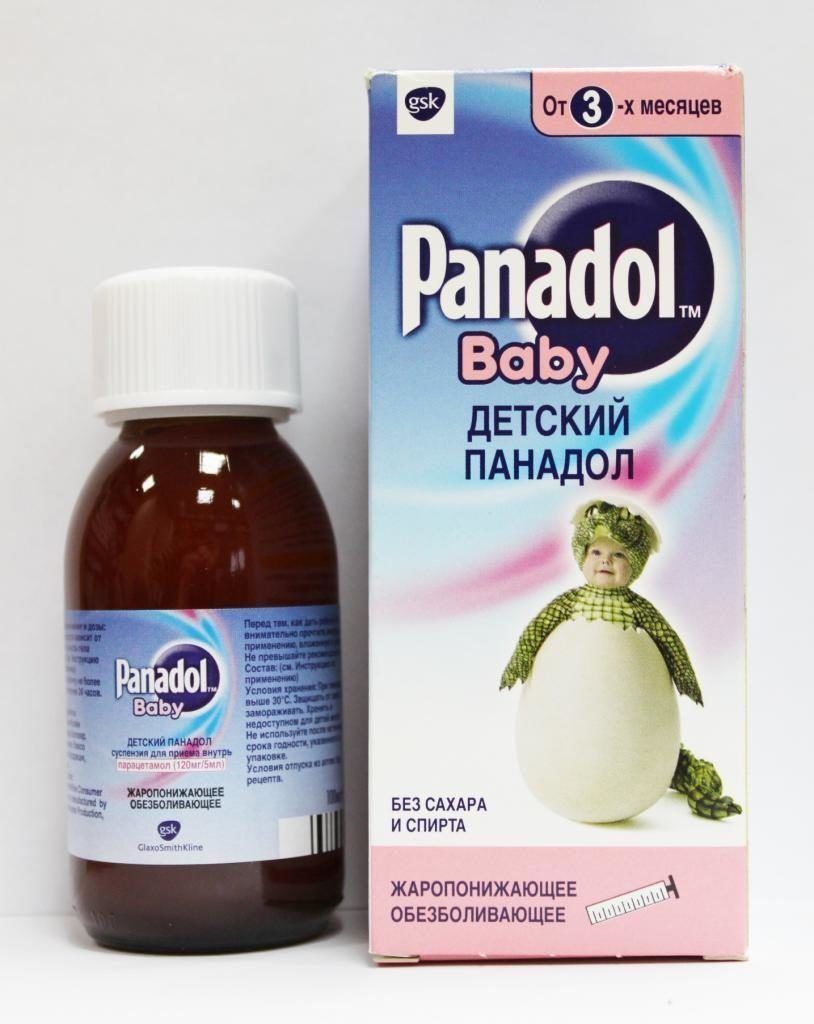
- applied from an early age;
- available in various forms;
- does not provoke the occurrence of edema.
- the dosage must be calculated individually to avoid allergic reactions.
In the pharmacy chain, the price of the drug is 80-130 rubles, depending on the form.
Calpol
Another drug for the treatment of children, containing paracetamol as an active ingredient. You need to give the child this remedy after a meal in 60-90 minutes. The medicine is in the form of a suspension, so it cannot be diluted with water. The drug should be swallowed and washed down with plenty of water.
It is recommended to use Calpol from the age of 3 months. It has practically no side effects and acts quickly, thanks to which it gained popularity.
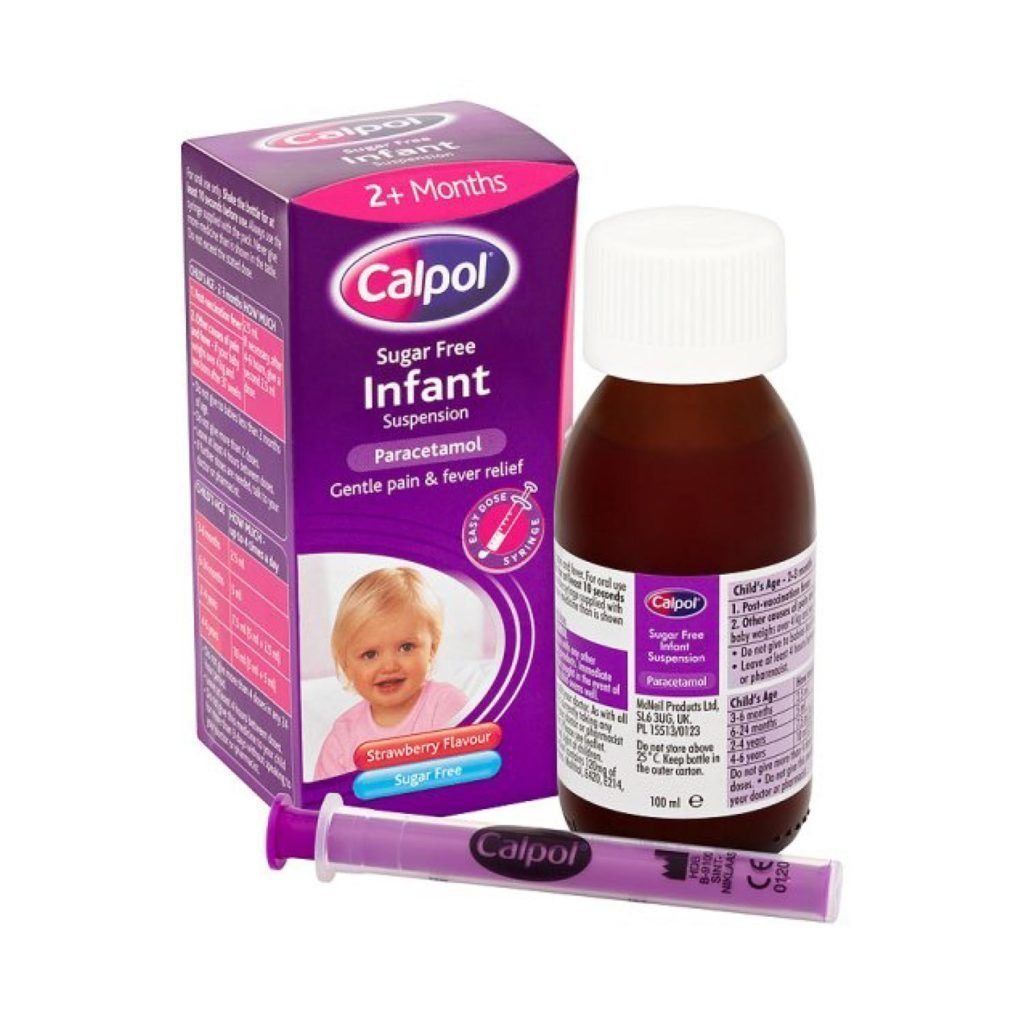
- can be taken at an early age;
- acts quickly;
- side effects are very rare.
- the only form of drug is suspension;
- may be allergic due to the inclusion of flavorings and flavor enhancers.
The price of the medicine is 85 rubles.
Tsefekon-D
Another remedy with paracetamol as an active ingredient. For young children, rectal suppositories are the main form of release. This drug is used to relieve hyperthermia during viral and colds, as well as after vaccination. You can use it for treatment from 1 month. The tool not only relieves hyperthermia, but also has an analgesic effect, fights inflammation.
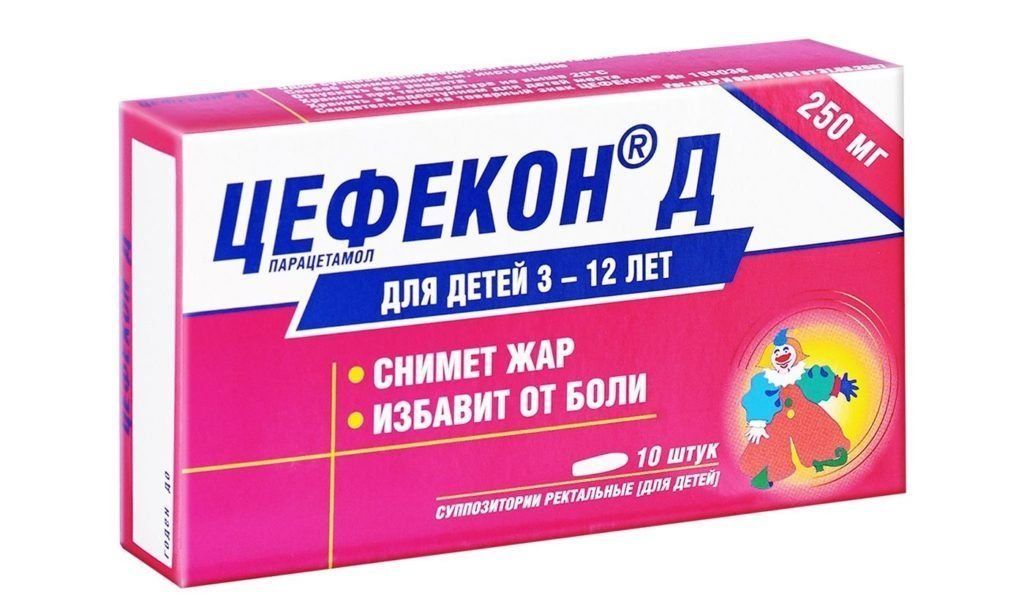
- comfortable shape, suitable for treating babies;
- relieves heat well;
- available drug.
- in case of an overdose, an allergic reaction is possible.
The cost of the drug is from 50 rubles.
Efferalgan
This drug has a different form of release, but for children it is used in the form of suppositories or a sling. There is always a measuring spoon in the package with a bottle of syrup, with which you can accurately measure the required amount of the drug. Efferalgan is allowed to be given to a child from the age of 1 month, adding it to milk, water or juice. Suppositories are available with different concentrations of the active ingredient. Therefore, when choosing this form of the drug, it is important to take into account the child's age and body weight. If the baby is more than two years old, you can give the drug as a drink by diluting the powder in water. It has a pleasant fruit flavor.
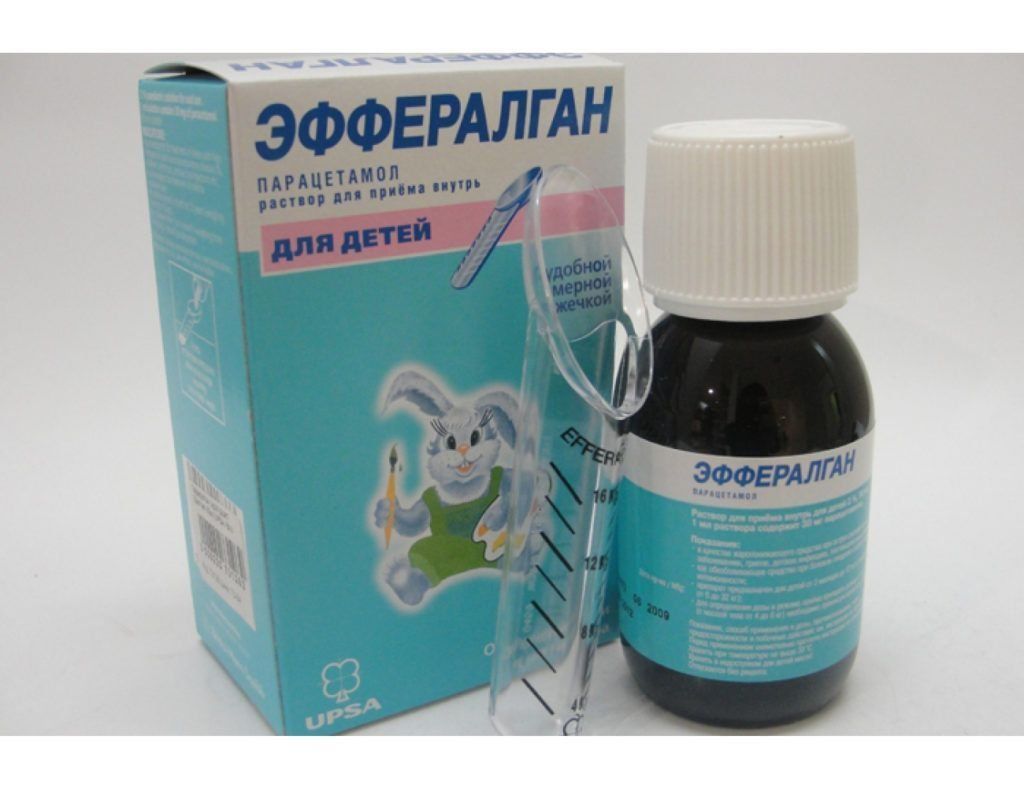
- different forms of release;
- effectively lowers body temperature;
- can be used at an early age.
- an allergic reaction to the drug is possible;
- the dosage must be selected individually.
The cost of the drug in the pharmacy network is 100-200 rubles.
Ibuprofen products
Pediatricians recommend giving these drugs to children in the event that for some reason it is impossible to give a drug with paracetamol or it does not bring a positive effect. Contraindication to taking medications with ibuprofen is bronchial asthma, diseases of the intestines, liver or circulatory system. Children are allowed to use such drugs from three months. If the dosage is incorrectly calculated, an allergic reaction, diarrhea, vomiting or nausea may occur.
Ibuprofen
The use of this drug requires mandatory consultation with a pediatrician, but with his permission, Ibuprofen is given even to newborns. This non-steroidal anti-inflammatory agent is well tolerated by children. For children, the medicine is used in the form of a suspension with a strawberry or orange flavor. The drug is used during the treatment of colds, various infectious diseases. Also, as a prophylactic agent, Ibuprofen is given to children after vaccination.
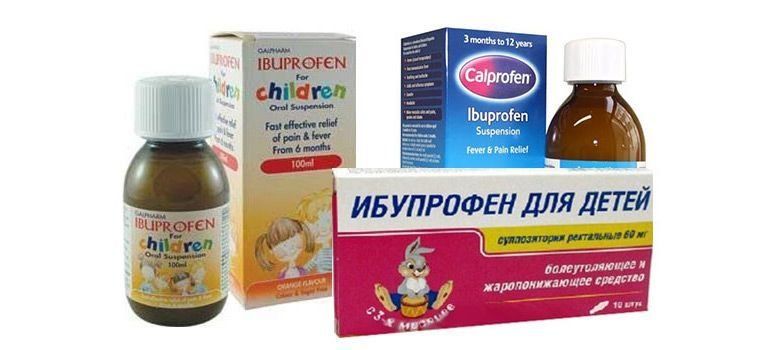
- well tolerated by the child;
- gives a quick effect.
- does not affect the course of the disease, eliminates only the symptoms;
- can be used for a short time;
- cannot be combined with paracetamol.
The average price of a medicine is from 90 rubles.
Nurofen
This drug works in several ways. It not only reduces hyperthermia, but also relieves pain, has an anti-inflammatory effect. His children are given in the form of suppositories or suspension, which has a pleasant strawberry flavor.The drug has a fast action, helps to reduce fever and relieves symptoms in a variety of colds and viral diseases. In some cases, there may be irritation of the stomach lining after taking this drug, which causes pain, vomiting, and nausea. It is necessary to take into account the child's body weight and age in order to correctly calculate the required dosage. You can take the drug from three months.
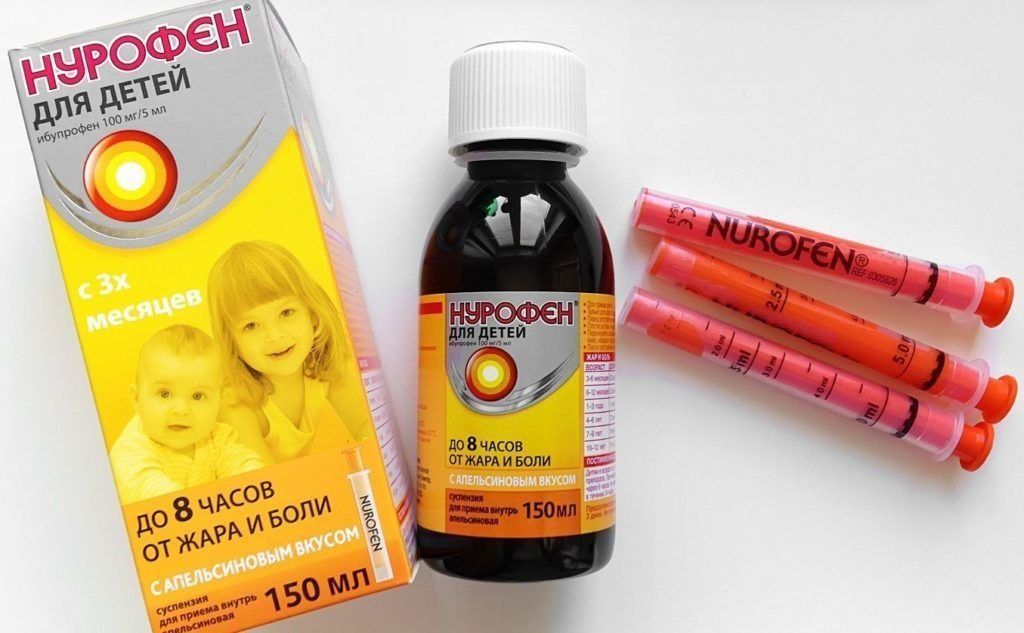
- well tolerated;
- quickly gives effect.
- does not affect the course of the disease;
- in case of an overdose, abdominal pain, vomiting and nausea occur;
- the dosage must be selected individually.
The price of the drug is on average 110-120 rubles.
Ibufen
The drug acts in different directions. Approved for use for children from the age of 12 months, while the weight of the child must exceed 7 kg. The drug is available only in the form of a suspension, which must be shaken and drunk undiluted before use. The dose for a single use is selected individually, depending on the condition of the child. In this case, the maximum per day is allowed to give the drug 4 times.
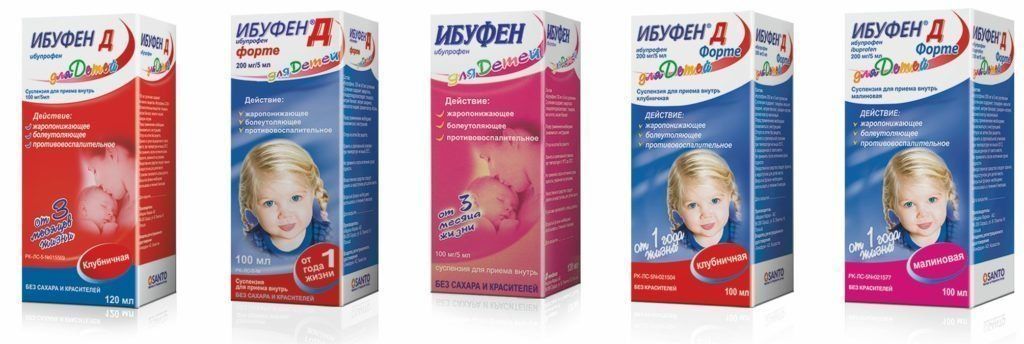
- fast and effective action;
- allowed from 1 year.
- there may be allergic reactions;
- the dosage is selected individually.
The suspension price is 90 rubles.
Motrin
On sale, this agent is found in the form of a suspension. It can be given to a child from the age of 2 years. It helps to reduce hyperthermia, and also reduces headaches and muscle discomfort. In case of an overdose, the characteristic manifestation is urticaria, indigestion, dizziness.
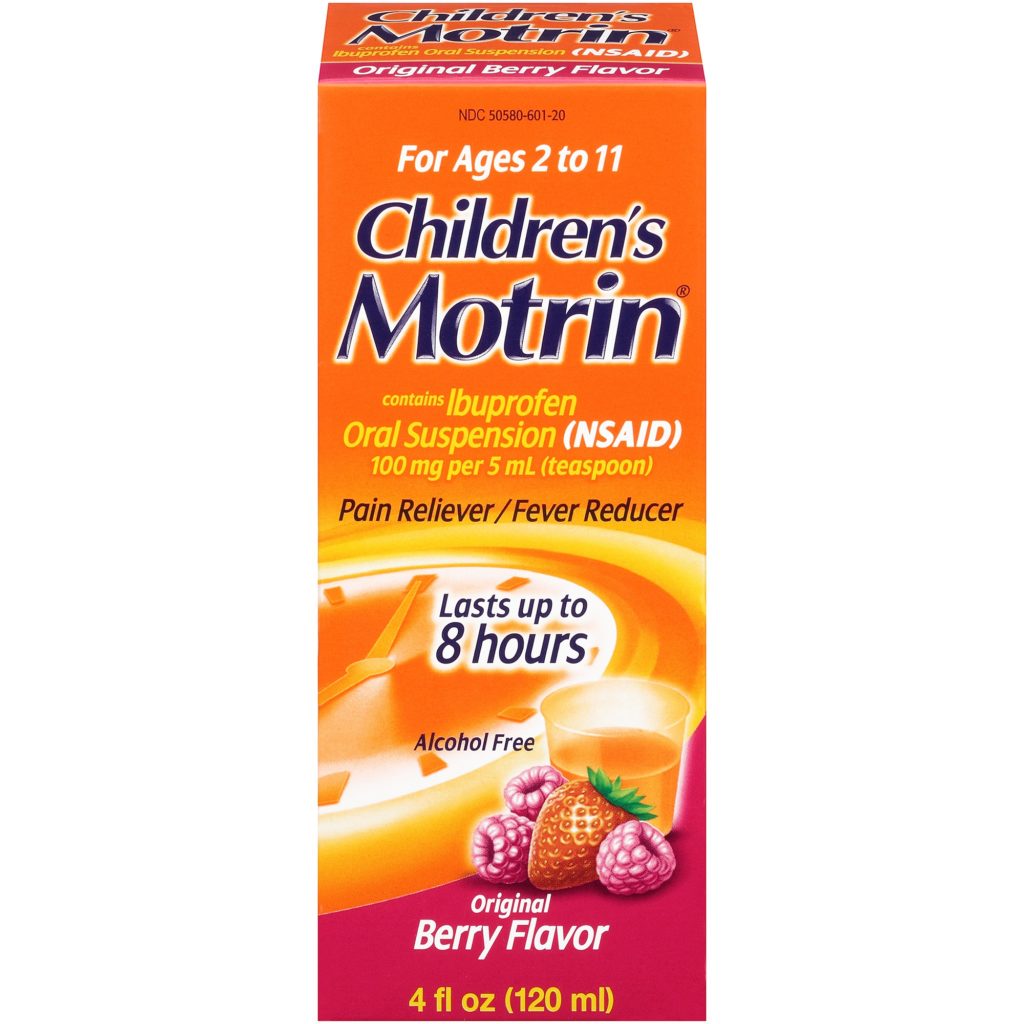
- complex action;
- quick effect.
- in case of an overdose, side effects are possible.
The drug costs an average of 140 rubles.
Alternative drugs
Some parents prefer to use homeopathic remedies to get rid of hyperthermia in their children, although many pediatricians do not approve of this. Also, if it is impossible to use paracetamol or ibuprofen drugs, other drugs are used.
Viburcol
It is the main homeopathic medicine used to reduce fever in children. It is a rectal suppository with natural herbal ingredients. They are used twice a day if there is an improvement. When there are severe symptoms of the disease, it is allowed to use Viburcol up to 5 times a day.
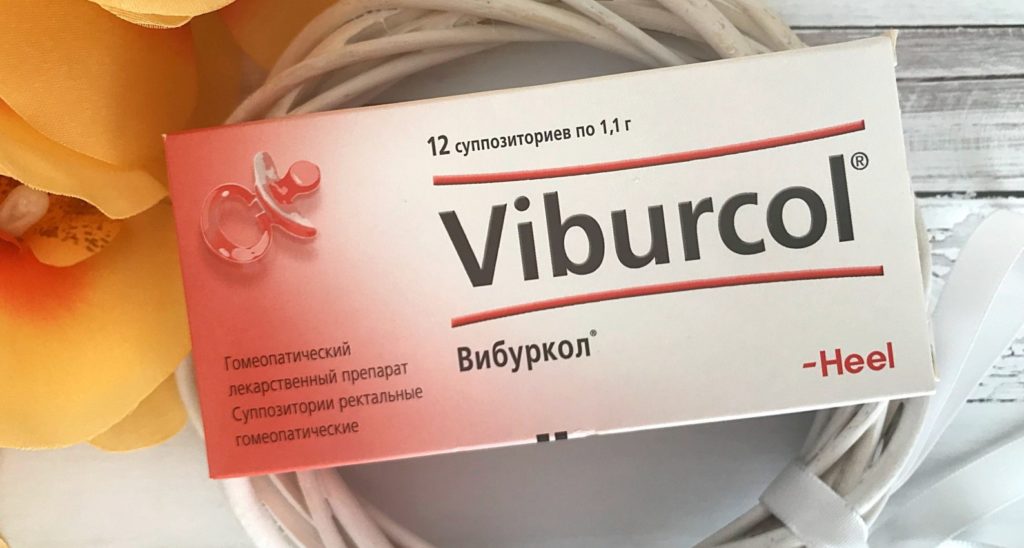
- completely herbal preparation;
- can be given to the child several times a day.
- the effectiveness of the drug is questionable;
- high price.
The tool costs an average of 337 rubles.
Nimesulide
This drug is recommended for lowering fever in older children. It is recommended for adolescents from 12 years old to give 1 sachet twice a day. If the febrile condition is mild, a single dose is sufficient. The powder must be dissolved in a glass of water and drunk after meals.
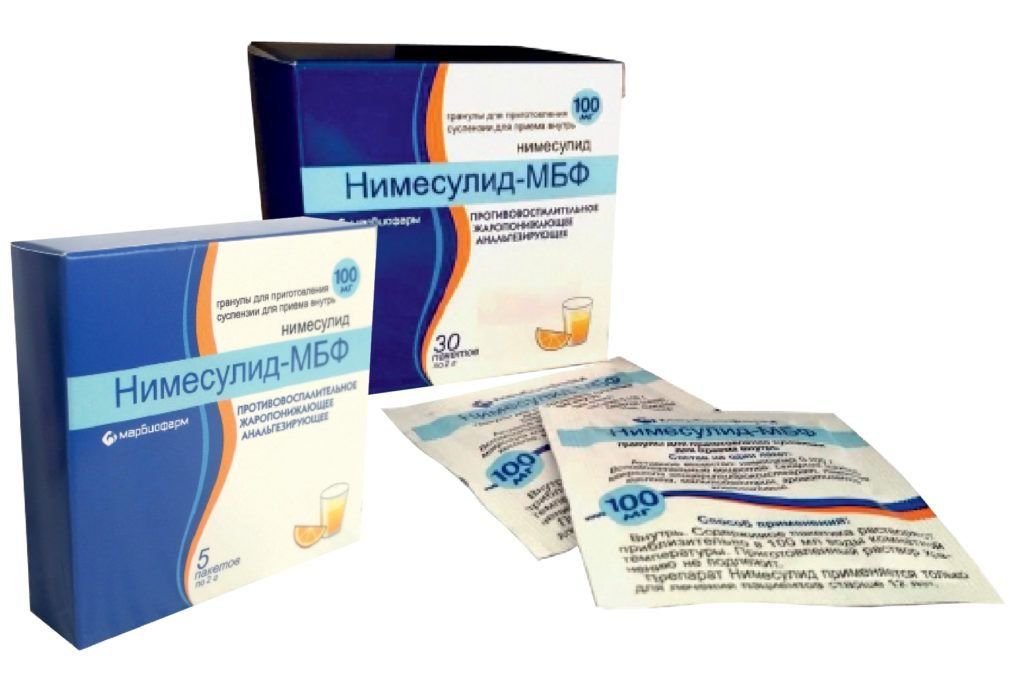
- the drug acts gently;
- side effects are rare;
- long-term preservation of the result after one dose of the drug;
- fast onset of the effect.
- can be given to children only from 12 years old.
The medication costs an average of 240 rubles.
| P / p No. | Group | Drug name | price, rub. |
|---|---|---|---|
| 1 | With paracetamol | Paracetamol | 50 |
| 2 | Panadol | 80 | |
| 3 | Calpol | 85 | |
| 4 | Tsefekon-D | 50 | |
| 5 | Efferalgan | 100 | |
| 6 | With ibuprofen | Ibuprofen | 90 |
| 7 | Nurofen | 110 | |
| 8 | Ibufen | 90 | |
| 9 | Motrin | 140 | |
| 10 | Alternative | Viburcol | 337 |
| 11 | Nimesulide | 240 |
In addition to the drugs presented, folk remedies can be used to get rid of hyperthermia in children. On the first day of temperature development, vinegar or vodka rubbing can be used. In this case, vodka is diluted in half with water. To prepare the vinegar solution, add 1 tbsp to 1 glass of water. l.In this case, the child is rubbed completely, starting with the arms and legs, without affecting the groin and heart area. When the liquid evaporates from the surface of the body, the patient is covered with a blanket and a cold compress is placed on the forehead.
Another way to reduce fever is with hot tea with raspberries or honey. Drinking plenty of hot drinks makes the sweat glands work harder. This causes profuse sweating and a drop in body temperature.
new entries
Categories
Useful
Popular articles
-

Top rating of the best and inexpensive scooters up to 50 cubic meters in 2020
Views: 97661 -

Rating of the best materials for noise insulation for an apartment in 2020
Views: 95022 -

Rating of cheap analogues of expensive medicines for flu and colds for 2020
Views: 91751 -

The best men's running shoes in 2020
Views: 87680 -

Top ranking of the best smartwatches 2020 - price-quality
Views: 85091 -

Best Complex Vitamins in 2020
Views: 84801 -

The best dye for gray hair - 2020 top ranking
Views: 82406 -

Rating of the best wood paints for interior use in 2020
Views: 77202 -

Ranking of the best action cameras from China in 2020
Views: 75269 -

Rating of the best spinning reels in 2020
Views: 74827 -

The most effective calcium supplements for adults and children in 2020
Views: 72462 -

Top rating of the best means for male potency in 2020 with a description
Views: 68296




